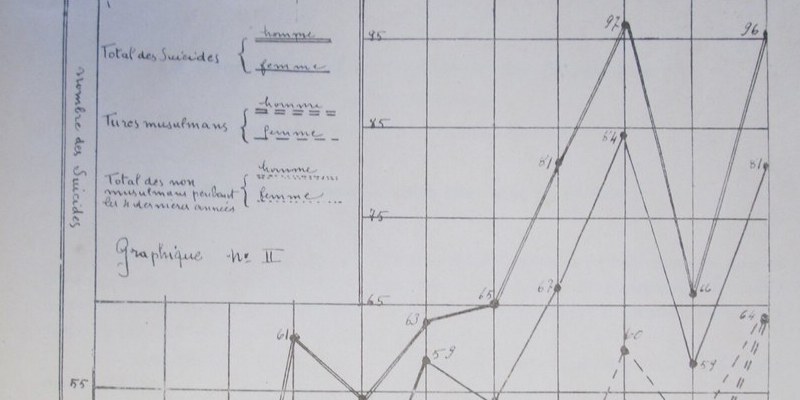Women and Suicide in Early Republican Turkey
with Nazan Maksudyan
hosted by Susanna Ferguson
Download the episode
In the 1920s and 1930s, politicians, intellectuals, and members of the public joined a lively debate about the issue of female suicide in Turkey. While we cannot know whether the rates of female suicide were actually skyrocketing during this period, the fact that so many public figures began to treat this issue as a central concern tells us a lot about the relationship between the modernizing state of Early Republican Turkey and the women whom it governed. In this episode, Nazan Maksudyan explores what might have provoked this debate, what it might say about the state and its relationship to women, gender, and the female body, and how women themselves might have used suicide as a means of asserting their agency.
Stream via Soundcloud
 |
Nazan Maksudyan is an Assistant Professor in the Department of Sociology at Istanbul Kemerburgaz University. Her work examines the social, cultural, and economic history of children and youth during the late Ottoman period. (see academia.edu) |
 | Susanna Ferguson is a doctoral candidate in Middle Eastern History at Columbia University, where she focuses on the history of women and gender in the Arab world during the late 19th and early 20th centuries. (academia.edu) |
Episode No. 205
Release date: 25 October 2015
Recording location: Istanbul Kemerburgaz University
Editing by Onur Engin, generously funded by a paid assistantship at Koç University under the supervision of Associate Professor Nina Ergin
Bibliography courtesy of Nazan Maksudyan
Image courtesy of Nicholas Danforth
SELECT BIBLIOGRAPHY
A. Holly Shissler. "If You Ask Me': Sabiha Sertel's Advice Column, Gender Equity, and Social Engineering in the Early Turkish Republic," Journal of Middle East Women's Studies 3 (2007): 1-30.
A. Holly Shissler. "Beauty Is Nothing to be Ashamed of: Beauty Contests as Tools of Women’s Liberation in Early Republican Turkey," Comparative Studies of South-Asia, Africa and the Middle-East 24 (2004): 107–122.
Ruth A. Miller. The Limits of Bodily Integrity: Abortion, Adultery, and Rape Legislation in Comparative Perspective. Aldershot, United Kingdom: Ashgate, 2007.
Pelin Başçı. "Love, Marriage, and Motherhood: Changing Expectations of Women in Late Ottoman Istanbul," Turkish Studies, 4 (2003): 145-177.
Nazan Maksudyan. “Control over Life, Control over Body: Female Suicide in Early Republican Turkey.” Women’s History Review (Spring 2014): 1.
Nazan Maksudyan. "'This time women as well got involved in politics!': Nineteenth Century Ottoman Women's Organizations and Political Agency." In Women and the City, Women in the City: A Gendered Perspective to Ottoman Urban History, Nazan Maksudyan (ed.) New York: Berghahn Books, 2014. pp. 107-135.
Nicholas Danforth. "One More World War One Tragedy." The Afternoon Map (3 February 2015).
Ayça Alemdaroğlu. "Politics of the Body and Eugenic Discourse in Early Republican Turkey," Body & Society 11 (2005): 61-76.
Nurullah Şenol. "Arşiv Belgeleri Işığında Osmanlı Toplumunda İntihar," Toplumsal Tarih 110 (2003): 52-56.
Nurullah Ulutaş. Türk Romanında İntihar (1872-1960). Ph.D. dissertation, Uludağ University, 2006.
Zafer Toprak. "Dr. Cemal Zeki’nin ‘Delişmen, Çılgın Kızlar’ı – Cumhuriyette Genç Kız ve Kadın İntiharları," Toplumsal Tarih 87 (2001) : 25-29.
A. Holly Shissler. "If You Ask Me': Sabiha Sertel's Advice Column, Gender Equity, and Social Engineering in the Early Turkish Republic," Journal of Middle East Women's Studies 3 (2007): 1-30.
A. Holly Shissler. "Beauty Is Nothing to be Ashamed of: Beauty Contests as Tools of Women’s Liberation in Early Republican Turkey," Comparative Studies of South-Asia, Africa and the Middle-East 24 (2004): 107–122.
Ruth A. Miller. The Limits of Bodily Integrity: Abortion, Adultery, and Rape Legislation in Comparative Perspective. Aldershot, United Kingdom: Ashgate, 2007.
Pelin Başçı. "Love, Marriage, and Motherhood: Changing Expectations of Women in Late Ottoman Istanbul," Turkish Studies, 4 (2003): 145-177.
Nazan Maksudyan. “Control over Life, Control over Body: Female Suicide in Early Republican Turkey.” Women’s History Review (Spring 2014): 1.
Nazan Maksudyan. "'This time women as well got involved in politics!': Nineteenth Century Ottoman Women's Organizations and Political Agency." In Women and the City, Women in the City: A Gendered Perspective to Ottoman Urban History, Nazan Maksudyan (ed.) New York: Berghahn Books, 2014. pp. 107-135.
Nicholas Danforth. "One More World War One Tragedy." The Afternoon Map (3 February 2015).
Ayça Alemdaroğlu. "Politics of the Body and Eugenic Discourse in Early Republican Turkey," Body & Society 11 (2005): 61-76.
Nurullah Şenol. "Arşiv Belgeleri Işığında Osmanlı Toplumunda İntihar," Toplumsal Tarih 110 (2003): 52-56.
Nurullah Ulutaş. Türk Romanında İntihar (1872-1960). Ph.D. dissertation, Uludağ University, 2006.
Zafer Toprak. "Dr. Cemal Zeki’nin ‘Delişmen, Çılgın Kızlar’ı – Cumhuriyette Genç Kız ve Kadın İntiharları," Toplumsal Tarih 87 (2001) : 25-29.











Comments
Post a Comment
Due to an overwhelming amount of spam, we no longer read comments submitted to the blog.